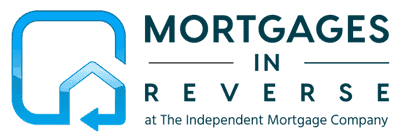In the bustling cityscape of Vancouver, where soaring skyscrapers mirror rising property values, the serenity of retirement can feel like a distant dream.
You're probably wondering how interest rates influence reverse mortgages, especially in Vancouver's volatile real estate market. Well, it's not as complex as you might think. However, the impacts are significant and understanding them can transform your financial planning.
Curious to find out how? Let's just say, the answer might surprise you.
Key Takeaways
- Interest rates significantly influence reverse mortgage costs and equity accessibility in Vancouver.
- The city's high housing prices can impact net equity in a reverse mortgage.
- Creditworthiness and insurance play key roles in determining interest rates and risk in reverse mortgages.
- Case studies demonstrate the varied experiences of Vancouver homeowners with reverse mortgages due to interest rate fluctuations.
Understanding Reverse Mortgages
To fully grasp how interest rates affect reverse mortgages in Vancouver, it's crucial to first understand what a reverse mortgage is and how it functions. A reverse mortgage is a financial tool that allows homeowners, typically of retirement age, to draw upon the equity in their home while continuing to live in it.
Regarding mortgage eligibility, you must own your home outright or have a low mortgage balance that can be paid off at closing with proceeds from the reverse loan. You also need to use the home as your primary residence, be at least 62 years old, and not be delinquent on any federal debt.
Repayment options vary, but you don't need to make monthly mortgage payments with a reverse mortgage. Instead, the loan must be repaid in full when the last surviving borrower permanently moves out, sells the home, or passes away. If the home is sold, proceeds from the sale are used to pay off the loan and any remaining equity is given to you or your heirs. Understanding these basics will help you comprehend the role of interest rates in the reverse mortgage process.
Role of Interest Rates
In evaluating the influence of interest rates on reverse mortgages, it's essential to recognize that they significantly determine the cost and the amount of loan you can qualify for. The interplay between rate fluctuations and economic indicators can often seem complex but is critical in shaping your reverse mortgage experience.
Rate fluctuations impact the amount of equity you can tap into as well as the overall cost of your loan. Higher interest rates mean less available equity and a higher cost over time. On the flip side, lower rates can result in more accessible equity and lower costs.
Economic indicators, such as inflation or GDP growth, also play a significant role in determining interest rates. A robust economy often leads to higher interest rates as lenders anticipate that borrowers' income will increase, making loans more expensive to repay. In contrast, during periods of economic decline, interest rates often drop to encourage borrowing and stimulate the economy.
Understanding the role of interest rates in reverse mortgages is vital in making informed financial decisions. It's about more than just low or high rates; it's about understanding the wider economic context and adjusting your strategies accordingly.
Vancouver's Real Estate Landscape
Navigating Vancouver's real estate landscape, a dynamic arena with its own set of challenges and opportunities, can significantly influence your reverse mortgage prospects. This landscape is characterized by key elements such as housing affordability and gentrification effects, both of which can impact your reverse mortgage plans.
Housing affordability in Vancouver is a significant concern. Despite the recent market slowdown, you'll find that Vancouver's housing prices are among the highest in Canada. This high cost can limit your equity, affecting the amount you can access through a reverse mortgage. It's crucial to carefully assess your property value and explore various options to ensure you're making the most of your investment.
Gentrification effects also play a role. As neighborhoods transform and property values surge, you might find your home's value appreciating. This might seem like a boon but remember, it could also lead to higher property taxes, reducing your net equity. Therefore, understanding these gentrification effects is key.
Interest Rates and Reverse Mortgages
While evaluating your property's value and understanding neighborhood transformations are important, it's equally crucial to consider how interest rates can impact your reverse mortgage in Vancouver. The role of interest rates in your reverse mortgage isn't isolated; it intertwines with factors such as creditworthiness and mortgage insurance.
Let's delve into the role of creditworthiness first. Even though you're not required to make monthly payments with a reverse mortgage, lenders still assess your creditworthiness. Lenders view a higher credit score as an indicator of lower risk, which could potentially lead to more favourable interest rates.
Then, there's the aspect of mortgage insurance. You're required to pay for mortgage insurance when taking a reverse mortgage. This insurance protects you if your lender can't meet their financial obligations. However, it's important to note that the premium for this insurance can be influenced by interest rates. Higher interest rates may result in a higher insurance premium.
Therefore, when considering a reverse mortgage, it's essential to understand how interest rates interact with these factors. Being mindful of interest rates can help you navigate the complex process of reverse mortgages more effectively.
Case Studies: Vancouver Homeowners
To better grasp the impact of interest rates on reverse mortgages, let's examine the experiences of select homeowners in Vancouver.
- Homeowner A: With a high credit score and considerable home equity, this homeowner found reverse mortgage accessibility straightforward. Despite higher interest rates, they viewed the reverse mortgage as a beneficial financial tool.
- Homeowner B: This homeowner struggled with mortgage accessibility due to a lower credit score. Higher interest rates compounded their difficulty, making a reverse mortgage less feasible.
- Homeowner C: Despite owning a high-value property, the increased interest rates made the reverse mortgage unattractive for this homeowner. They opted for alternative financing options.
- Homeowner D: This homeowner, despite their average credit score, found the rising interest rates manageable. They successfully navigated the reverse mortgage process, demonstrating that personal financial management can influence outcomes.
These homeowner experiences in Vancouver highlight how interest rates significantly affect the accessibility and attractiveness of reverse mortgages. While some homeowners can weather higher rates due to strong financial standing, others may find them prohibitive. Understanding these dynamics can help shape more effective financial strategies.
Frequently Asked Questions
What Are the Eligibility Criteria for Applying for a Reverse Mortgage in Vancouver?
You might think getting a reverse mortgage in Vancouver is complicated, but it's simpler than you'd expect.
Primarily, you'll need to meet homeownership requirements, meaning you must own your home outright or have a low mortgage balance. However, the reverse mortgage process also considers your age, the home's value, and its location.
It's important to review these criteria carefully, as they're key to your eligibility for a reverse mortgage.
How Does a Reverse Mortgage Affect My Estate or Inheritance for My Heirs in Vancouver?
When you opt for a reverse mortgage in Vancouver, it directly impacts your estate planning. Your property's equity decreases over time, potentially leaving less for your heirs.
However, the inheritance tax isn't affected as Canada doesn't have one. It's crucial to discuss this with your loved ones and a financial advisor to ensure you're making the best choice for your personal circumstances.
Can I Get a Reverse Mortgage if I Have an Existing Traditional Mortgage on My Vancouver Property?
Yes, you can get a reverse mortgage even if you have an existing traditional mortgage on your Vancouver property. However, it's like juggling two balls at once.
The application process requires settling your primary mortgage first, using mortgage alternatives if necessary.
What Are the Risks or Potential Downsides of a Reverse Mortgage Specific to Vancouver's Housing Market?
In Vancouver's housing market, getting a reverse mortgage can pose risks. Property value fluctuations might impact your equity negatively. If your home's value drops, you're still liable for the loan amount.
Government regulations also play a role. Changes in policies might affect your loan terms unfavorably. It's crucial you're aware of these potential downsides before deciding on a reverse mortgage in Vancouver.
How Does a Reverse Mortgage Impact My Tax Situation in Vancouver?
In Vancouver, a reverse mortgage may alter your tax situation. It's not taxable income, so you won't be paying taxes on the money you receive.
However, you'll lose potential mortgage deductions on your income tax since you're not making regular interest payments. Carefully consider these tax implications before deciding on a reverse mortgage.
It's also advisable to consult a tax professional to fully understand the specific impacts on your tax situation.

